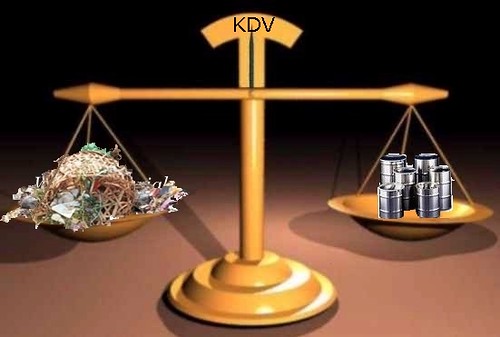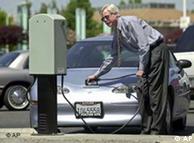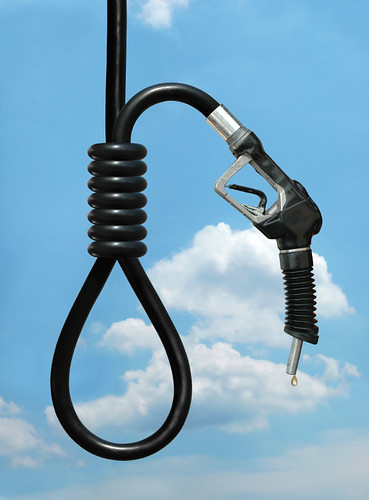FHWA Transportation and Climate Change Newsletter – May 2009
(Source: Office of Planning, Environment and Realty Federal Highway Administration)
Recent Events
House Energy and Commerce Committee Approves HR 2454. On May 21, 2009, after several days of deliberation, the House Energy and Commerce Committee approved HR 2454 “American Clean Energy and Security Act of 2009.” This includes a proposal for a cap and trade program and several provisions related to the transportation sector. It includes requirements to establish transportation-related greenhouse gas emissions goals and inclusion of a plan to achieve those goals in some metropolitan long-range transportation plans and transportation improvement programs. The legislation also calls for greenhouse gas emission standards on new vehicles including heavy duty on-road and non-road, marine, locomotive, and aircraft engines. The bill will now be referred to up to eight other House committees with jurisdiction over parts of the proposed legislation. The Senate has indicated it will take up climate legislation as well, but the timeline in the Senate is unclear.
EPA and DOT to Conduct Joint Rulemaking on GHG and CAFE Standards. EPA and DOT/NHTSA filed a joint Notice of Intent in the May 22 Federal Register to propose a coordinated greenhouse gas and fuel economy program. The program would apply to light-duty vehicles (cars, SUVs, minivans, and pickup trucks) for model years 2012-2016. Standards for model years after 2016 would be developed in a future rulemaking. EPA is considering a standard that would ramp down to an average 250 grams/mile CO2 (155 g/km) for model year 2016. Regarding fuel economy, President Obama announced on May 19 that a combined fleet average standard of 35.5 miles per gallon would apply by the 2016 model year. Preliminary analysis indicates that the combined program would lead to a reduction of approximately 890 million metric tons CO2 equivalent emissions and 1.8 billion barrels of oil for the model years covered. The Federal Register Notice is available here: http://edocket.access.gpo.gov/2009/E9-12009.htm. A press release from the White House is available here: http://www.whitehouse.gov/the_press_office/President-Obama-Announces-National-Fuel-Efficiency-Policy/
EPA Announces 2008 Clean Air Excellence Awards. On May 13, EPA announced the recipients of its awards, including several transportation related entries. Stonyfield Farm, the yogurt maker, received an award in the category of Transportation Efficiency Innovations for strategies that led to a net 37 percent reduction of CO2 emissions in one year, despite company growth. For details on all of the 2008 award recipients see:http://www.epa.gov/air/caaac/recipients.html.
Robert Ritter Named FHWA Sustainable Transport and Climate Change Team Leader. Robert Ritter, currently a Team Leader in the FHWA Office of Planning, will be the Team Leader for FHWA’s Sustainable Transport and Climate Change Team beginning late June. Rob has been leading Phase II of the DOT Gulf Coast Study, which will further study the impacts of climate change on transportation infrastructure and operations and develop risk assessment tools. Prior to joining FHWA in 2003, Rob worked for the Eno Transportation Foundation.
State News
New York City Climate Change Risk. The New York City Panel on Climate Change released a report on climate change projections and potential risks to the city’s critical infrastructure. Global climate model projections are provided for temperature, precipitation, sea level rise, and extreme events for the New York City area. The document also includes information on the likelihood of risks associated with these impacts and their potential implications for New York City infrastructure. An appendix includes a breakdown of implications for several infrastructure categories, including transportation. The full report is available here:http://www.nyc.gov/html/om/pdf/2009/NPCC_CRI.pdf
Impacts of Climate Change in Washington State. Two studies were released discussing the impacts of climate change in Washington State. The studies were commissioned by the Washington State Legislature. The Climate Change Impacts Group at the University of Washington studied potential impacts of climate change using global climate models scaled to the Northwest, and the Climate Leadership Initiative at the University of Oregon looked at potential economic costs to Washington’s families, businesses and communities. The studies show that without action to reduce greenhouse gas emissions, impacts in the state will be “profound.” For more information and links to the reports, see: http://www.ecy.wa.gov/biblio/0901006.html.
Reminders
DOE Funding Available for Transportation Projects that Conserve Energy. The America Recovery and Reinvestment Act of 2009 appropriated $3.2 billion for The Energy Efficiency and Conservation Block Grant Program. Transportation strategies are eligible for funding. Applications for the funding must come from states, Indian tribes, or local governments. Grant application deadlines are May 26 for states and June 25 for local governments and tribes. For more information, contact Diane Turchetta at 202-493-0158 or Diane.Turchetta@dot.gov, or see: http://www.eecbg.energy.gov.
2009 Transportation, Planning, Land Use and Air Quality Conference to focus on Climate Change. The conference, sponsored by the Transportation Research Board, FHWA, and others, will explore the latest research in the coordination of transportation, land use and air quality with a specific focus on climate change strategies. The conference will be held in Denver, CO July 28 and 29, 2009. For more information, see:http://www.ucs.iastate.edu/mnet/tpluaq/home.html.
If you have any suggestions for inclusion in future issues of Transportation and Climate Change News, or if you would like to receive it directly in the future, please send your suggestions or request to Becky Lupes at Rebecca.Lupes@dot.gov.



 Likewise, we hope to find common ground among metropolitan areas in the Southwest Megaregion on programs and policies that would help regions and subregions meet their core infrastructure challenges. The forum marks the first major convening of the west coast office of America 2050, housed at the
Likewise, we hope to find common ground among metropolitan areas in the Southwest Megaregion on programs and policies that would help regions and subregions meet their core infrastructure challenges. The forum marks the first major convening of the west coast office of America 2050, housed at the 








